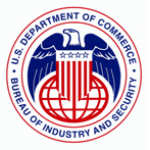 Today the Bureau of Industry and Security (“BIS”) published a final rule which expanded the criteria which the agency could use to put foreign persons and companies on its “Entity List.” Most exports of U.S.-origin items to parties on the Entity List require export licenses, including exports of items that are not listed on the Commerce Control List.
Today the Bureau of Industry and Security (“BIS”) published a final rule which expanded the criteria which the agency could use to put foreign persons and companies on its “Entity List.” Most exports of U.S.-origin items to parties on the Entity List require export licenses, including exports of items that are not listed on the Commerce Control List.
Initially the Entity List included persons and companies that were likely to divert exports into programs related to weapons of mass destruction. The new rule now permits BIS to designate foreign entities on the list when it determines that the entity has been engaged in activities that are detrimental to the foreign policy or national security interests of the United States.
Five types of activities are detailed in the new rule as examples of such detrimental conduct:
- Supporting persons engaged in acts of terror;
- Supporting the military or terrorism capabilities of governments that have been designated by the State Department as repeatedly providing support for international terrorism;
- Dealing with conventional weapons in a manner detrimental to the foreign policy or national security interests of the United States
- Preventing accomplishment of an end-use check by BIS or the Directorate of Defense Trade Controls (“DDTC”); or
- Engaging in conduct that poses a risk of violating the Export Administration Regulations (“EAR”) when such conduct raises sufficient concern that prior review of exports or reexports involving the party enhances BIS’s ability to prevent such violations
These rules provide fairly broad grounds for designation, and it is hard to predict how aggressively BIS will pursue designations based on these five new categories. Two comments on the new rules, however, are in order.
First, some of the comments on the proposed rule that formed the basis of the final rule released today noted that there appeared to be an overlap between the Unverified List and the fourth category contained in the new rule, i.e., preventing an end-use check. BIS noted that the difference between the two lists is that parties can be placed on the Unverified List where BIS is unable to conduct an end-use check, whether that is because of the party’s active refusal to cooperate with the agency or permit the end-use check or because of some other reason unrelated to the party’s activity. On the other hand, an active refusal or interference with an end-use check can provide a basis now for designation on the Entity List.
Second, the most interesting comment, and the least helpful response from BIS, was buried near the end of BIS’s notice adopting the final rule:
One commenter stated that the rule should make clear that only listed entities—not, for example, unlisted affiliates, subsidiaries or sister entities are covered.
BIS intends to publish guidance on dealing with entities related to those on the Entity List in the near future.
This has been a persistent problem with the Entity List and other BIS lists, and BIS shouldn’t have blithely declined to provide guidance when promulgating this rule. The issue is whether the fact that an end-user is a parent, subsidiary or affiliate of a listed entity should be treated as a red flag, triggering an obligation to engage in more due diligence to assure that the item won’t be diverted to the listed entity or whether that fact should that trigger a license requirement. At least for the moment, BIS isn’t providing any guidance on this issue.
The safest course of action is to treat an export to a parent or a wholly-owned subsidiary of a company on the Entity List as equivalent to an export to the listed entity and to obtain a license. Exports to affiliates of a company or individual on the Entity List should trigger due diligence and further investigation to assure that the exported item won’t be diverted to the listed entity.
 Permalink
Permalink
Copyright © 2008 Clif Burns. All Rights Reserved.
(No republication, syndication or use permitted without my consent.)

 Posted by
Posted by  Category:
Category: 

